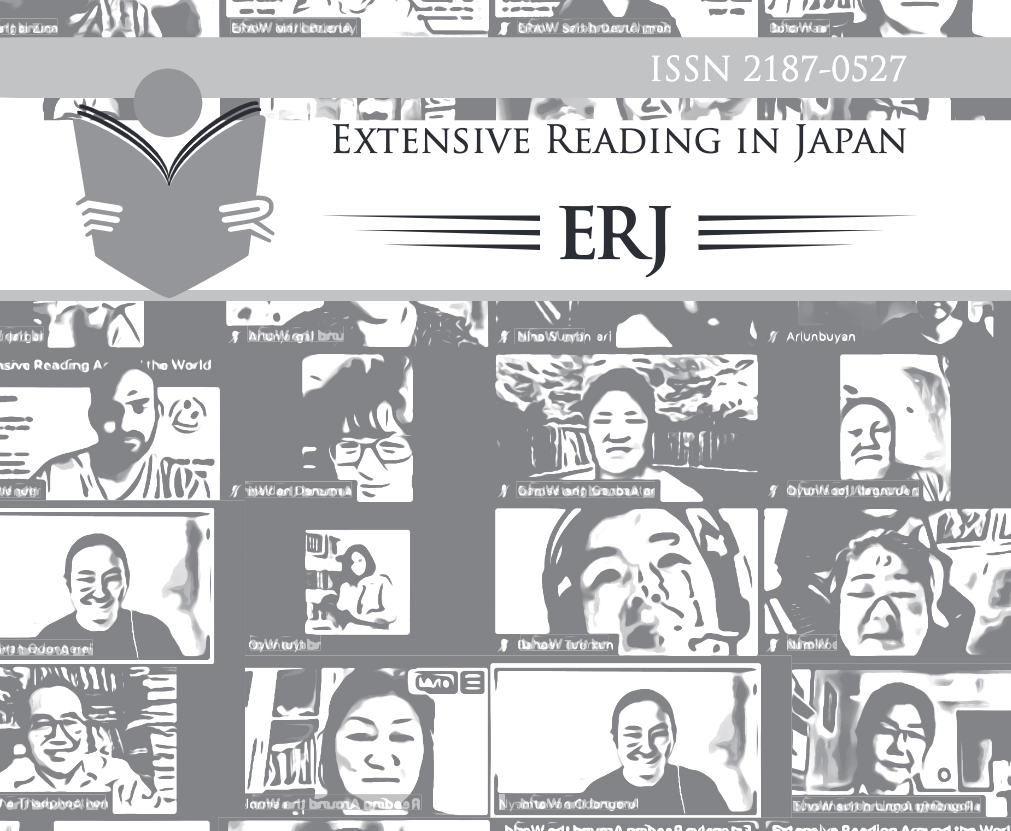
The JALT ER SIG exists to help promote Extensive Reading (ER) in Japan and via our website, our newsletter, the ERJ Journal, and presentations throughout Japan we aim to help teachers set up and make the most of their ER programmes. 全国語学教育学会多読分野別研究部会「JALT ER SIG」は、講師達がERプログラムをスムーズに始められるよう、またそれを有効的に利用できることを目的に活動しています。またこの概念を元に、私達のウエブサイト、会報、ERJ雑誌、プレゼンテーションなどを通じERの促進を促しています。

About ER
ERJ
Extensive Reading in Japan (ERJ) - the Journal of the JALT Extensive Reading SIG - is a biannual subscription based journal mostly aimed at our members in Japan. As our original JALT publication, the ERJ exists to help promote Extensive Reading (ER) in Japan and aims to serve the members of the ER SIG.
Current Issue here.
ERJ Back Issues here.
Graded Readers here.
JER
The Journal of Extensive Reading (JER) is a peer-reviewed online journal of research on extensive reading run by the Japan Association of Language Teaching (JALT) Extensive Reading Special Interest Group. The journal supplements what is already offered in the journal Extensive Reading in Japan (ERJ) by focusing on the publication of high-quality empirical research on ER.
We encourage readers to sign up for the publishing notification service for this journal. Use the Register link. This registration will result in the reader receiving the Table of Contents by email for each new issue of the journal.
Interested in submitting to this journal? We recommend that you review the About the Journal information, as well as the Author Guidelines. Authors need to register with the journal prior to submitting, or if already registered can simply log in and begin the 5 step process.
If you would like to join the JER publication team, please contact us here.
Contact ER
Our Sessions
Language Classroom Content & Pedagogy
Extensive Reading Research: A Chat With Paul Nation and Rob Waring
This presentation will review some basic findings from decades of research into the effectiveness of extensive reading. This body of research highlights some main areas still unexplored which still need investigating. Some suggested research designs will be put forward, and suggestions made to ensure robust designs. Some of the major pitfalls in ER research will also be explained. We will close with a call for research in extensive listening, followed by the SIG AGM.
Language Classroom Content & Pedagogy
Diagnosing Reading in a Foreign Language: How Do We Get There?
This workshop introduces a framework for diagnosing foreign language reading skills (Alderson et al., 2015). The session will cover the foregrounding principles and stages in diagnostic testing: observation, initial assessment, hypothesis testing, decision making and feedback. By looking at individual student differences and bottom-up reading processes, teachers can identify learner strengths and weaknesses to support them in reading challenges and development opportunities. Tasks from various diagnostic tools will be trialed through experiential learning activities.